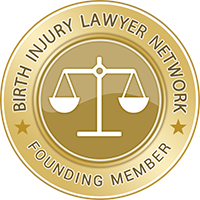Effexor While Pregnant
Effexor is an antidepressant with the generic name venlafaxine. It belongs to a group of drugs called selective serotonin and norepinephrine reuptake inhibitors (SSNRIs) and is prescribed for the treatment of depression, anxiety disorder and panic disorder. While the drug is known for its effectiveness, women who are pregnant or planning to get pregnant should be cautious in taking this drug lest they put their baby at risk of being born with birth defects.
The Food and Drug Administration have labeled Effexor as a pregnancy category C drug which means that there has been proof that the drug, if taken during pregnancy, may cause some harm to the baby especially when taken when the mother is in her third trimester. Women who have been taking the antidepressant drug should also consult their doctor before stopping drug intake because this may result to withdrawal symptoms which may also affect the baby. Effexor’s toxicity or sudden withdrawal may result in adverse effects on the baby such as:
- Difficulty of breathing
- Lack of oxygen in the blood (cyanosis)
- Interruption of breathing (apnea)
- Seizures
- Tremors
- Temperature instability
- Difficulty sucking
- Vomiting
- Low blood sugar levels
- Irritability
- Constant crying
A number of medical researchers have associated the intake of Effexor to birth defects such as:
- Persistent Pulmonary Hypertension
- Heart Defects
- Nueral tube birth defects
- Craniosynostosis
- Omphalocele
- Anal Atresia
- Cleft lip
- Cleft palate
- Limb defects
Effexor intake has also been associated with miscarriages according to a study published online in 2010 on the Canadian Medical Association Journal by scientists at the University of Montreal. The study stated that women who take the antidepressant drug during the first trimester of their pregnancy were more likely to miscarry as compared to mothers who did not take the drug.
After delivery, mothers who are breastfeeding their babies should also take caution in taking Effexor. The drug manufacturer themselves is taking the lead in cautioning breastfeeding women and recommending to the healthcare providers to take into consideration the potential side effects it may have on nursing infants before prescribing the drug. Effexor can pass into breast milk and may cause harm to the baby.
Pregnant women are prone to depression and if untreated may also cause harm to both mother and child. It is a debilitating disorder which can affect every aspect of a mother’s life while carrying a child in her womb. The most common characteristics of a pregnant woman having depression is low self esteem. Thus, healthcare providers are urged to carefully weigh the potential risks the drug poses to the baby against the mother’s need to have the drug for treatment. According to studies, children born to women who were depressed during their pregnancy were more likely to have trouble with cognitive, social, and psychological development.
Find an Experienced Birth Injury Attorney in your Local Community
 Find A Lawyer in Columbus, OH
Find A Lawyer in Ohio
Find A Lawyer in Any State
Find A Lawyer in Columbus, OH
Find A Lawyer in Ohio
Find A Lawyer in Any State
